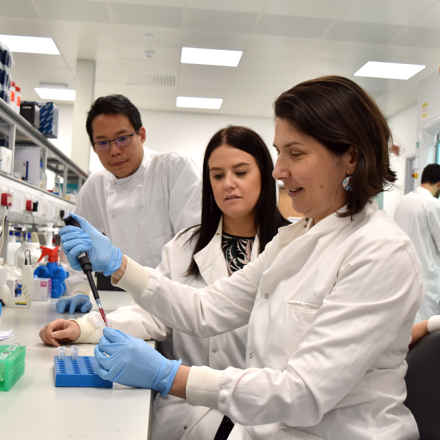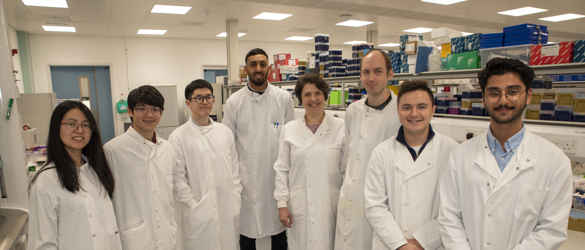How do ageing mitochondria work and communicate differently?

Prof Luminita Paraoan, Manchester Metropolitan University - £230,270
Mitochondria are vital parts of every cell. They create the energy that cells need to survive and carry out tasks. The important layer of cells in the back of the eye called the retinal pigment epithelium (RPE) requires a large amount of energy, so the mitochondria can get stressed. Over time and with age these mitochondria get damaged, and we see higher amounts of damage in patients with AMD. This work aims to understand what happens to these mitochondria when they age and get damaged, how we could slow or stop this damage and whether that could slow or stop the progression of AMD.
What is the problem?
As we get older the cells in our body accumulate waste and damage and work less effectively. We understand that with age-related macular degeneration (AMD), the cells in the back of the eye called retinal pigment epithelium (RPE) become damaged - in particular the mitochondria, the part of the cell that provides energy. The RPE is vital to the functioning of the retina and damaged RPE cells lead to vision loss.
What are they doing?
This study aims to better understand how and why the RPE and mitochondria become damaged in AMD. By better understanding the process, we may learn the causes and ways to stop or slow this damage. This work will also investigate how the damaged mitochondria interacts and communicates with other parts of the RPE cell.
How can this help?
This work aims to investigate the early changes in the RPE that we see in AMD and why this damage occurs. By identifying these early changes we can hopefully find targets for new treatments which could stop the damage before it progresses to late AMD and vision loss.
Want to know more?
To learn more about Professor Paraoan's research, please see the video below.
See our other projects
Since 1987 the Macular Society has invested around £10 million in over 100 research projects.
Explore more research
Beating macular disease through funding medical research and improving the lives of those living with macular disease.
Get the latest research news from the Macular Society
To hear about life-changing research and treatments, subscribe to our monthly enewsletter today. Together we can Beat Macular Disease.
Sign up to our free email newsletter



